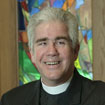Commentary on Psalm 66:1-9
A Response to the First Reading
On this Sunday, the church uses verses from Psalm 66 to respond to and echo Isaiah’s call to rejoice as we summon the whole earth to “be joyful” and “sing the glory of God’s name” (66:1, 2). “Psalm 66 recalls God’s deliverance at the Exodus (verse 6), celebrated at the early harvest festival, for which the poet pledges appropriate thanksgiving sacrifices.”1
The appointed verses appear to be a community hymn, the purpose of which is summarized in verse 8: “Bless our God, O peoples, let the sound of his praise be heard.” The psalmist calls all the earth to make a joyful noise to God (66:1) and declares, “All the earth praises you, they sing praises to you, sing praises to your name” (66:4). In the First Reading, Isaiah announces that God will extend prosperity to Jerusalem so that all may know that God’s hand is with God’s servants and God’s indignation is against God’s enemies (66:12, 14). Echoing this good news, the psalmist recalls God’s “awesome deeds” and proclaims that God’s great power keeps God’s people among the living and causes enemies to cringe (66:3, 9).
Who are God’s Enemies?
“Because of your great power, your enemies cringe before you” (66:3). So who are God’s enemies? Does God, in fact, have enemies, and how do we preach about them? We tend to look for some “other,” for someone else to be God’s enemies. We seem to find that someone in verse 7: “who rules by his might forever, whose eyes keep watch on the nations—let the rebellious not exalt themselves.” Yet, to name “the nations” or “the rebellious” as God’s enemy is too simplistic. While “the nations” are mentioned this once, the reference to the Exodus in verse 6 reminds us of all the ways God’s people doubted, complained, and rebelled against God as they wandered their way through the wilderness behind a pillar of cloud and fire.
This might be an occasion to preach about death and everything that causes God’s people–us–to trip and fall as God’s enemies. The preacher might dare to name all the ways we die and the ways we individually and congregationally–and on this Independence Day, perhaps nationally–doubt, complain, and rebel against God as we follow God through the wilderness of the world.
While the Fourth of July might tempt us to name “others” as God’s enemies, a God-fearing people in a “Christian nation” witnesses to its faith by concretely naming and specifically confessing the ways our country functions as God’s enemy. The preacher can then declare the good news that nevertheless, God “has kept us among the living, and has not let our feet slip.”(66:9). Taking a cue from the Epistle reading, Paul might call these things that we name and confess “transgressions” and invite the preacher to “restore . . . in a spirit of gentleness” (Galatians 6:1).
See God’s Awesome Deeds
Perhaps more appealing, the preacher might join the seventy sent by Jesus and use the psalm to proclaim God’s awesome deeds of great power, so that the assembly might know, in Luke’s words, that “the dominion of God has come near to you” (Luke 10:9). The psalmist declares, “Come now and see the works of God, how awesome are God’s deeds toward all people” (verse 5). The psalmist recalls God’s “awesome deeds” (verse 3) of transforming the sea into dry land and permitting God’s people to cross the river into the Promised Land without getting their feet wet. These Exodus events, which bookend Israel’s wilderness sojourn, provide a context or interpretive key for the psalmist’s invitation for the people to thank God for a more recent rescue (66:8-9). The psalmist recalls the people at the sea rejoicing “there” (66:6-7) and calls the people to likewise bless God for keeping them alive and not allowing them to misstep.
Rather than explicitly and objectively naming God’s awesome deeds in the individual or corporate lives of the congregation or nation, the appointed psalm gives us a perspective from which we can discover and name God’s awesome deeds, or the ways the dominion of God has come near to us, for ourselves. After all, God’s awesome deeds are not objective or obvious. Israel passing safely through the sea brought death upon Egypt and crossing the river meant warfare and occupation for the people living in Israel’s Promised Land. When the church sings this psalm, it claims the Exodus as its own story and points to the fact that, in the death and resurrection of Jesus, God likewise rules over the nations and that, when it comes near to us, the dominion of God will bring destruction to the powers of this world. In humility we therefore name the ways God has kept us among the living and not let our feet slip (66:9).
Preaching Psalm 66:1-9
Whether the preacher chooses to name God’s enemies or point to God’s awesome deeds, the appointed psalm does not permit a self-congratulatory hooray for us, our church, or, especially on this day, our nation. Indeed, we are blessed. Yet, our blessings often mean suffering for others. More striking still, despite our blessings, we often end up as God’s enemies. As the psalmist says, the praise on this day belongs to God who keeps us among the living in spite of ourselves and who does awesome deeds toward all people. The sermon should leave the assembly blessing God, singing the glory of God’s name, and letting the sound of praise be heard.
1 Konrad Schaefer, David W. Cotter, Jerome T. Walsh, Chris Franke, Psalms (Collegeville, MN: Liturgical Press, 2001), 160.

July 4, 2010